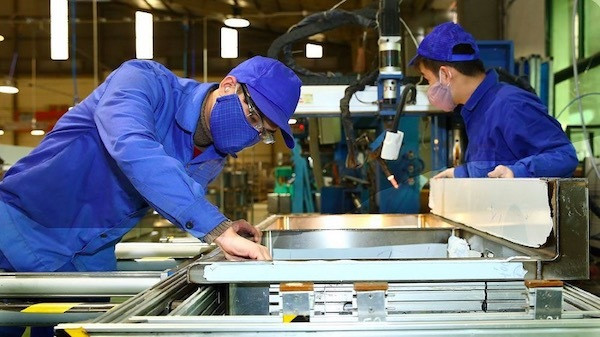
According to Minister Nguyen Chi Dung, there are a number of lessons learned from the operation of SOEs in the 2016-2021 period.
Firstly, the role, position and mission of SOEs are determined to be very important and challenging, but their rights, responsibilities, obligations and interests are incommensurate.
Secondly, to develop the country quickly and sustainably, it is necessary to mobilize and concentrate resources of SOEs for development investment, especially infrastructure development, grasping core technologies, and developing industries and new products in line with the trend of the times.
Thirdly, regarding state management, SOEs must have full rights and obligations like other enterprises in the economy, and operate according to market principles. Therefore, SOEs must be given full business autonomy like other enterprises.
Fourthly, there must be a mechanism to select and appoint qualified SOE management teams. At the same time, there should be a salary regime and other benefits corresponding to the capacity and results of business administration and operations.
SOEs must be the leaders of the economy, responsible for investing in large-scale projects, which have a spillover effect on the economy.
The development of SOEs must be linked with the implementation of the development strategy of industries and areas of the economy. It is necessary to clearly identify key industries and fields that need the presence of SOEs in line with the country's sustainable development orientation (renewable energy, high-tech industry, important national infrastructure). SOEs must be encouraged to transform their development model towards using clean energy, green economy, circular economy, sustainable, and inclusive and humane development according to Vietnam's commitment at the 26th United Nations Climate Change conference (COP 26).
The minister also emphasized that we need to change our perception and views on equitization and divestment of state investment in enterprises. The goal of equitization and divestment is not to withdraw state capital from SOEs, narrowing the scope and scale, but to restructure the investment portfolio to improve the quality, efficiency and value of state investments.
After more than 30 years of reorganizing and renovating SOEs with the focus on equitization and divestment, (excluding defense, security and agro-forestry SOEs), there are only 94 large-scale SOEs, including: 9 economic groups; 67 state-owned corporations, 18 companies operating under the model of parent - subsidiary company. These SOEs hold about 90% of total assets, 88% of total revenue and 86% of pre-tax profit of all SOEs nationwide.
Important solutions for the development of SOEs
Minister Nguyen Chi Dung mentioned a number of important solutions to create strong motivation and open up resources of SOEs.
They include: working out policies to support, encourage and develop specific management tools for large-scale SOEs that play an important role in the key sectors of the economy.
It is necessary to clearly define orientations, and assign them specific missions, tasks and goals commensurate with their resources, positions and roles in the development of related fields of the economy.
Administrative orders on equitization or divestment from SOEs should not be made. This task should be implemented based on market principles and signals, ensuring openness, transparency and efficiency to restructure and raise more capital for developing relevant SOEs.
To build a national database system on SOEs and state assets for timely assessment, monitoring and supervision of the operation of SOEs, to improve the production and business efficiency of SOEs.
In addition, promote the application of information technology and digital transformation in the management of information about SOEs.
Ministries, state agencies and local authorities, especially the Committee for Management of State Capital at Enterprises, must change their working manner, to implement fully and effectively the owner's rights at SOEs in accordance with the laws and international practices.
To complete the state management of SOEs, assign a ministry to act as the focal point to supervise the activities of the owner's representative agency, work out development orientations and improve operational efficiency of SOEs.
To develop a monitoring mechanism and improve supervision efficiency over SOEs.
To promote the application of information technology in monitoring the activities of SOEs to detect violations early and give early warning of risks that can cause losses for SOEs.
To apply the salary mechanism and policy associated with labor productivity and production and business efficiency, especially for senior managers of SOEs.
Minister Dung hoped that the Government and Prime Minister will make important and fundamental decisions to help "untie", create strong motivation, and open up resources so that SOEs can contribute more to the country’s development in the new era.
Lan Anh